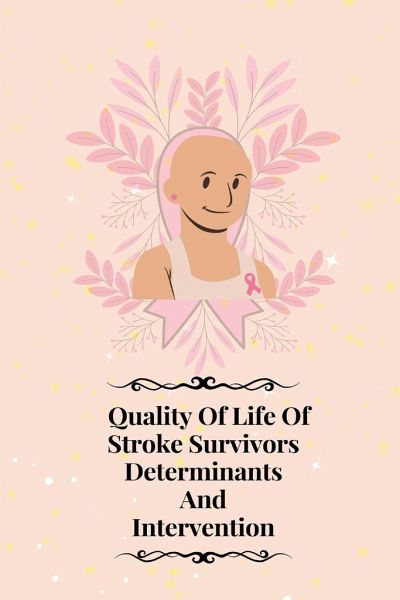Nicht lieferbar

Quality of life of stroke survivors determinants and intervention
Versandkostenfrei!
Nicht lieferbar
Globally cerebrovascular disease (stroke) is the second most important cause of death (WHO, 2008). The word "stroke" itself depicts the manner in which this disorder often occurs to a person. As aptly noted by Stein (2004), a person who is dynamic and independent person is "struck down" (p.1). Stroke is an abrupt, life-changing incident that often gives no caution of its approach. Almost every survivor of stroke has been caught unaware and it has changed the life of the survivor forever. Duncan, Blankenship, & Bitensky (2009) have noted that stroke can lead to a range of neurological impairmen...
Globally cerebrovascular disease (stroke) is the second most important cause of death (WHO, 2008). The word "stroke" itself depicts the manner in which this disorder often occurs to a person. As aptly noted by Stein (2004), a person who is dynamic and independent person is "struck down" (p.1). Stroke is an abrupt, life-changing incident that often gives no caution of its approach. Almost every survivor of stroke has been caught unaware and it has changed the life of the survivor forever. Duncan, Blankenship, & Bitensky (2009) have noted that stroke can lead to a range of neurological impairments and medical problems. They have added that constraints in activities of daily living (ADLs) and reduced quality of life (QoL) are other major outcomes of stroke. Based on the progress in the diagnosis, treatment and therapies for stroke in the present day from the time when its occurrence was related to the Hippocratic concept of disparity in the "humours", it can be argued that knowledge about stroke has come a long way (Edlow, 2008). Stroke has been defined by WHO (2005b) as a "focal (or at times global) neurological impairment of sudden onset, and lasting more than 24 hours (or leading to death), and of presumed vascular origin (p.4)". As per this definition; stroke has its genesis in the vascular system referring to the blood vessels of the body, it occurs rapidly and lasts for a time period of more than twenty hours. Injury of the nervous tissues and even death of the patient has been reportede3 in many cases. A stroke or brain attack occurs when cells in the brain die due to insufficient flow of blood. While 80 per cent of the strokes are caused by the blockage of an artery in the neck or brain; the rest are caused by a burst blood vessel in the brain that causes bleeding into or around the brain.















